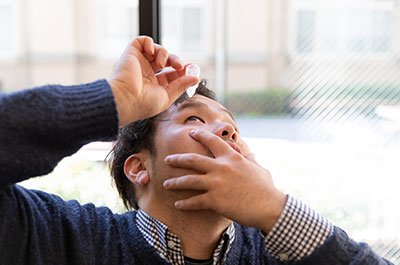When someone is experiencing a life-threatening allergy, a shot of the drug epinephrine can put the brakes on the allergic reaction—and save their life. Now, there’s another option when an emergency strikes.
In August 2024, the U.S. Food and Drug Administration (FDA) approved the first-ever nasal spray to treat life-threatening allergic reactions.
The spray, known as neffy®, also contains epinephrine, the same medication found in EpiPens® (epinephrine auto-injectors). The spray, which will be available by prescription only, is expected to be on pharmacy shelves by the end of 2024. And it’s likely to be an important tool for people with severe allergies, says Christian G. Nageotte, M.D., an allergy and immunology specialist who treats children and adults at Henry Ford Health.
“There are quite a few patients who are afraid of needles. This is a definite win for them,” he says. “Some patients may still prefer EpiPens, but the nasal spray will be a great option for many others.”
How Epinephrine Treats Anaphylaxis
Anaphylaxis is a life-threatening reaction that usually starts within a few minutes of encountering an allergen such as a food, medication or bee sting. “An anaphylactic reaction is the most severe form of an allergic reaction, and it affects organ systems throughout the body,” Dr. Nageotte explains.
During an anaphylactic reaction, a person’s blood pressure becomes dangerously low. Their mouth and airway can swell, making it hard to breathe. Untreated, the reaction can be deadly.
For years, epinephrine has been the treatment of choice to halt anaphylaxis in its tracks. The drug works in several ways, Dr. Nageotte explains. It increases blood pressure and opens the airways, making it easier to breathe. It also acts on the body’s immune cells to reverse the allergic response.
Until now, epinephrine was only available by injection—either given by a medical provider or self-administered with the help of an EpiPen. But there are drawbacks to epinephrine shots. EpiPens are bulky to carry in case of emergency. They typically only last 12 to 18 months before they must be replaced. And they are delivered by needle, which causes distress for a lot of people.
“Needle phobia is very common, and many people are anxious to give the medicine—whether to themselves or to another person,” Dr. Nageotte says. “It’s already a panicky situation when someone is having a severe allergic reaction. If someone is anxious, they might delay giving the shot. And during an anaphylactic reaction, every minute counts.”
An EpiPen Alternative

Need An Allergist?
Researchers tested the epinephrine nasal spray in people who weren’t having an allergic reaction. They found similar levels of epinephrine in the bloodstream of people whether they took neffy or received an injection. Based on those studies, FDA experts concluded that neffy should be as effective as an EpiPen for treating severe allergic reactions.
Still, neffy hasn’t yet been used in people who are experiencing anaphylaxis. For that reason, Dr. Nageotte says, some people might feel more comfortable carrying both emergency treatments until there’s more real-world evidence for neffy. “I suspect a lot of people will have a back-up EpiPen until the nasal spray is more tried-and-true,” Dr. Nageotte says. “As with any medication, you should talk to your doctor before making a decision about which option is best for you.”
Neffy will be sold as a single-use spray that can be puffed into one nostril during an anaphylactic reaction. The spray is smaller than an EpiPen, making it more convenient for some people to carry with them. It also has a shelf life of 30 months, so it won’t need to be replaced as often as an EpiPen.
So far, neffy is approved for adults and children who weigh more than 30 kilograms (about 66 pounds). The manufacturer is still studying the drug in smaller children, with hopes that a version for younger kids will be approved soon.
Having an epinephrine treatment that doesn’t involve needles will come as a relief to many people, Dr. Nageotte adds. “This was a niche that had been left empty. It’s great that we finally have another option to offer patients,” he says.
Reviewed by Christian G. Nageotte, M.D., an allergy and immunology specialist who treats children and adults at Henry Ford Medical Center - Columbus, Henry Ford Medical Center - Fairlane and Henry Ford Medical Center - Sterling Heights.



